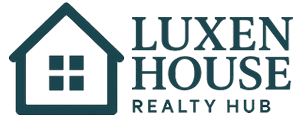
- 1- Introduction
- 2- Understanding Your Financial Situation
- 3- Types of Mortgages
- 4- Fixed vs. Variable-Rate Mortgages
- 5- Loan Term Options
- 6- Credit Score and Its Impact
- 7- Consulting Experts for the Best Choice
1- Introduction
Choosing the right mortgage is one of the most important decisions you'll make when purchasing a home. With various types of mortgages available, it can feel overwhelming, especially for first-time homebuyers. The key to choosing the best mortgage lies in understanding your financial situation and matching it with the loan options that best fit your needs.
In this article, we’ll guide you through the process of selecting the perfect mortgage by considering important factors like your financial situation, credit score, the type of mortgage, and loan terms. With the right information, you can make a more informed decision that will benefit you for years to come.

787 Seventh Avenue / 787 seventh avenue new york
New YorkNew York CountyNew York
787 7th Ave, New York, NY 10019, USA
2- Understanding Your Financial Situation
Before you start exploring mortgage options, it’s essential to have a clear understanding of your financial situation. Take stock of your income, debts, expenses, and savings. Knowing your budget and how much you can comfortably afford for monthly mortgage payments will help narrow down the best loan options for you.
Start by calculating your debt-to-income ratio (DTI), which is the percentage of your monthly income that goes toward paying your debts. A lower DTI ratio increases your chances of qualifying for better mortgage rates. Additionally, evaluate how much of a down payment you can afford. A larger down payment can help lower your monthly payments and interest rates.
3- Types of Mortgages
There are several types of mortgages, each with its own pros and cons. Here are the most common options:
- Conventional Mortgages: These are standard loans not insured by the government. They typically require higher credit scores and larger down payments.
- FHA Loans: Backed by the Federal Housing Administration, these loans are ideal for first-time homebuyers as they require smaller down payments and lower credit scores.
- VA Loans: Available to veterans, active-duty service members, and their families, VA loans offer competitive interest rates and no down payment.
- USDA Loans: For rural homebuyers, these loans are backed by the U.S. Department of Agriculture and offer low interest rates and no down payment requirements.
Each type of mortgage is designed to fit different financial needs and homebuying circumstances. Consider which one aligns with your financial capabilities and homeownership goals.
4- Fixed vs. Variable-Rate Mortgages
One of the most important decisions is whether to choose a fixed-rate or variable-rate mortgage.
- Fixed-Rate Mortgages: These mortgages offer a consistent interest rate throughout the loan term. This predictability is appealing for buyers who want stable monthly payments and long-term budgeting.
- Variable-Rate Mortgages: Also known as adjustable-rate mortgages (ARMs), these loans have interest rates that can fluctuate over time. While they may start with a lower initial rate, the rates can increase, making future payments less predictable.
For many homebuyers, a fixed-rate mortgage is often the safer choice as it ensures stability and protection from interest rate increases. However, if you plan on moving or refinancing before the rate adjusts, a variable-rate mortgage may save you money in the short term.
5- Loan Term Options
The length of your mortgage is another critical factor. The most common loan terms are 15 years and 30 years.
- 15-Year Mortgages: These loans offer shorter terms and typically come with lower interest rates. While your monthly payments will be higher, you’ll pay off your mortgage faster and save on interest in the long run.
- 30-Year Mortgages: These are the most common option. They offer lower monthly payments but come with a longer loan term and higher overall interest payments.
Choosing between these options depends on your financial comfort. A 15-year mortgage is ideal for those who can afford the higher monthly payments and want to pay off their loan faster. A 30-year mortgage is better for those who need lower monthly payments but are willing to pay more in interest over the life of the loan.
6- Credit Score and Its Impact
Your credit score plays a significant role in the mortgage process. A higher credit score can secure you a lower interest rate, which translates into lower monthly payments and significant savings over time. Conversely, a lower credit score may result in higher rates or even difficulty in securing a loan.
Before applying for a mortgage, check your credit score and take steps to improve it, such as paying off outstanding debts, correcting any errors on your credit report, or avoiding opening new credit accounts.
7- Consulting Experts for the Best Choice
While it’s essential to educate yourself on mortgage options, consulting with a mortgage advisor or financial expert can provide personalized advice tailored to your specific situation. These professionals can help you navigate the complex mortgage landscape and ensure that you select the best loan for your financial needs.
In conclusion, choosing the best mortgage involves understanding your financial situation, considering different mortgage options, and seeking expert advice. By taking the time to research and evaluate your options, you can secure a mortgage that aligns with your goals and helps you achieve homeownership with confidence.








 Regus0.0 (0 reviews)
Regus0.0 (0 reviews) Artemisia Management LLC3.0 (17 reviews)
Artemisia Management LLC3.0 (17 reviews) New Island Realty Inc.3.0 (8 reviews)
New Island Realty Inc.3.0 (8 reviews) Medow Property Group Ltd0.0 (0 reviews)
Medow Property Group Ltd0.0 (0 reviews) Carnegie House (enter on 6th Ave)4.0 (8 reviews)
Carnegie House (enter on 6th Ave)4.0 (8 reviews) venegas&latinos associates0.0 (0 reviews)
venegas&latinos associates0.0 (0 reviews) How to Research Neighborhood Trends Before Buying – Smart Homebuyer Insights | Luxen House Realty Hub
How to Research Neighborhood Trends Before Buying – Smart Homebuyer Insights | Luxen House Realty Hub Tips for Boosting Your Home’s Curb Appeal Before Listing | Luxen House Realty Hub
Tips for Boosting Your Home’s Curb Appeal Before Listing | Luxen House Realty Hub Tips for Buying a Home in a Historic District: What You Need to Know
Tips for Buying a Home in a Historic District: What You Need to Know Understanding the Pros and Cons of Short-Term Rentals
Understanding the Pros and Cons of Short-Term Rentals Understanding the Risks and Rewards of Foreclosed Property | Luxen House Realty Hub
Understanding the Risks and Rewards of Foreclosed Property | Luxen House Realty Hub How to Sell a Home Quickly During Peak Season - Tips and Strategies
How to Sell a Home Quickly During Peak Season - Tips and Strategies